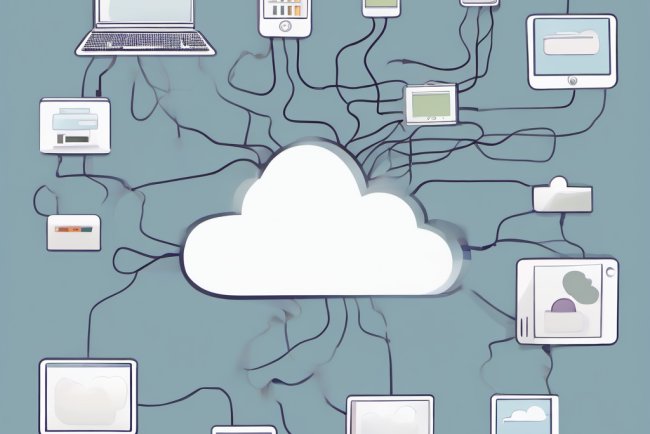Managed IT Services: Empowering Business Growth in 2024
how Managed IT Services can drive business growth in 2024

Managed IT Services: Empowering Business Growth in 2024

- Introduction
- What are Managed IT Services?
- Key Benefits of Managed IT Services
- Types of Managed IT Services
- Choosing a Managed IT Service Provider
- Implementing Managed IT Services
- Overcoming Challenges in Managed IT
- Emerging Trends in Managed IT Services
- Industry-Specific Applications
- Cost Considerations
- The Future of Managed IT Services
- Conclusion
Introduction
In today's rapidly evolving digital landscape, Managed IT Services have become a crucial component for businesses seeking to optimize their technology infrastructure, enhance cybersecurity, and drive operational efficiency. This comprehensive guide explores how Managed IT Services are revolutionizing business operations in 2024.
What are Managed IT Services?
Managed IT Services refer to the practice of outsourcing various IT functions to a third-party provider. These services typically include:
- Network Management and Monitoring
- Cybersecurity Services
- Cloud Services Management
- Data Backup and Recovery
- Help Desk and Technical Support
- Software and Hardware Management
- IT Strategy and Consulting
Key Benefits of Managed IT Services
Adopting Managed IT Services can provide numerous advantages to organizations:
- Cost Efficiency: Predictable monthly costs and reduced capital expenditures
- Enhanced Security: Access to advanced cybersecurity tools and expertise
- Improved Reliability: 24/7 monitoring and rapid issue resolution
- Scalability: Easily adapt IT resources to business growth
- Focus on Core Business: Free up internal resources to concentrate on strategic initiatives
- Access to Expertise: Leverage specialized skills without hiring in-house
- Compliance Support: Assistance in meeting industry-specific regulatory requirements
Types of Managed IT Services
Managed IT Services encompass a wide range of offerings:
- Managed Network Services
- Managed Security Services
- Managed Cloud Services
- Managed Communication Services
- Managed Support Services
- Managed Print Services
- Managed Software as a Service (SaaS)
Choosing a Managed IT Service Provider

Consider these factors when selecting a Managed IT Service provider:
- Service Level Agreements (SLAs) and Guarantees
- Range of Services Offered
- Industry Experience and Expertise
- Security Certifications and Compliance Standards
- Scalability and Flexibility of Services
- Customer Support and Response Times
- References and Case Studies
Implementing Managed IT Services

Successfully implementing Managed IT Services involves several key steps:
- Assessment of Current IT Infrastructure
- Defining Service Requirements and Objectives
- Vendor Selection and Contract Negotiation
- Transition Planning and Knowledge Transfer
- Service Integration and Go-Live
- Ongoing Performance Monitoring and Optimization
Overcoming Challenges in Managed IT

Common challenges in adopting Managed IT Services include:
- Resistance to Change from Internal IT Staff
- Data Security and Privacy Concerns
- Integration with Existing Systems and Processes
- Balancing Standardization with Customization Needs
- Managing Vendor Relationships and Performance
Emerging Trends in Managed IT Services

The Managed IT Services landscape is evolving with new technologies:
- AI and Machine Learning-Driven Services
- Edge Computing Management
- IoT Device Management
- Enhanced Cybersecurity Services
- Multi-Cloud Management
- Remote Workforce Support
Industry-Specific Applications

Managed IT Services are tailored to meet the unique needs of various industries:
- Healthcare: HIPAA compliance, telemedicine support
- Finance: Data security, regulatory compliance
- Manufacturing: IoT integration, supply chain management
- Retail: POS systems, e-commerce support
- Education: Student information systems, distance learning platforms
Cost Considerations

Understanding the financial aspects of Managed IT Services:
- Pricing Models (per-device, per-user, all-inclusive)
- Total Cost of Ownership Analysis
- Return on Investment Calculations
- Budget Planning and Allocation
The Future of Managed IT Services

As technology continues to advance, we can expect Managed IT Services to:
- Incorporate more predictive and prescriptive analytics
- Offer increased automation and self-healing capabilities
- Provide more specialized and industry-specific solutions
- Focus on holistic digital transformation support
- Expand integration with emerging technologies like 5G and quantum computing
Conclusion

Managed IT Services have become an essential strategy for businesses looking to leverage technology for growth and innovation. As we progress through 2024 and beyond, organizations that effectively utilize Managed IT Services will be well-positioned to adapt to technological changes, enhance their operational efficiency, and maintain a competitive edge in the digital marketplace. By carefully selecting the right Managed IT Service provider and implementing a tailored solution, businesses can focus on their core competencies while ensuring their IT infrastructure remains robust, secure, and aligned with their strategic goals.
What's Your Reaction?






















